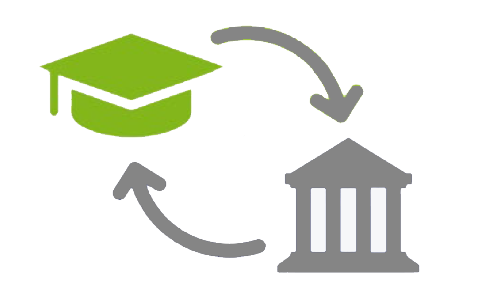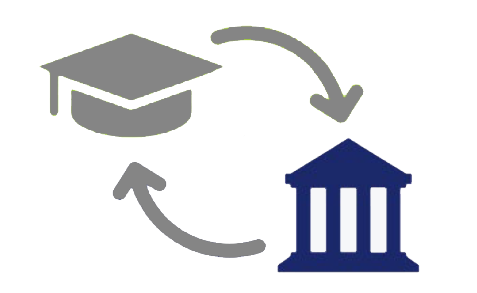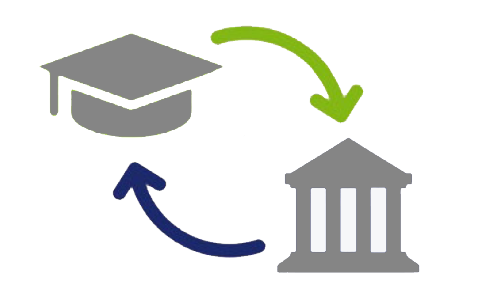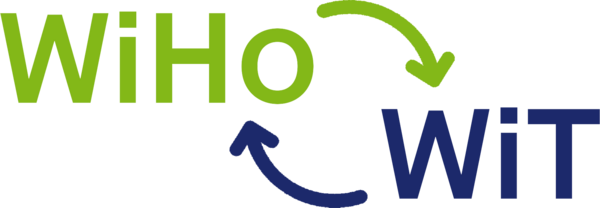Project Description
Subject of the project
The transfer of scientific knowledge to society is a relevant object of investigation in science and higher education research (called WiHo research), which is funded in relevant projects by the Federal Ministry of Education and Research. In the WiHoWiT project, transfer is investigated as a mutual exchange of knowledge between WiHo research and the science ministries of the federal states:

The research on the science and higher education system and the perspective of their scientists.

The departments within the ministries of science that are assigned to the universities and their employees

The model of a two-way transfer of data, information and knowledge between science and higher education research and its counterpart in the ministries of science.
State of research
Factors that can exert an influence on knowledge transfer include
- individual factors (e.g., motivation to pass on or absorb knowledge),
- organizational factors (e.g., hierarchical structures and modes of operation) and
- technical factors (e.g., digital channels).
Studies from Canada and the United Kingdom looking at the political implementation of social science knowledge further identified
- enabling factors (e.g., high relevance of the research topic)1 and
- inhibiting factors (e.g., the problem of timing between policy and science, i.e., making scientific knowledge available when it is needed)2 for the use of scientific knowledge in political processes.
Based on these results, the WiHoWiT project aims to investigate which facilitating and inhibiting factors influence the dissemination of scientific knowledge in ministerial policy-making in Germany.
Research questions
The WiHoWiT project examines the transfer of knowledge between science and higher education research and the ministries of science. It draws on the following research questions:
- How and through what channels does knowledge transfer between WiHo research and science ministries currently occur?
- What are the knowledge needs of the ministries of science in relation to WiHo research? What knowledge is used for what purposes? How does this knowledge reach the ministries of science?
- In what form does WiHo research make knowledge available? To what extent is there an explicit transfer in the direction of science policy? What role do intermediary organizations, e.g., consulting organizations, play in this process?
- To what extent is there feedback from the science ministries to WiHo research?
Literature
1Landry, R., Amara, N., & Lamari, M. (2001). Climbing the Ladder of Research Utilization. Evidence from Social Science Research. Science Communication, 22(4), 396–422.
2Smith, K., Fernie, S., & Pilcher, N. (2021). Aligning the times: Exploring the convergence of researchers, policy makers and research evidence in higher education policy making. Research in Education, 110(1), 38–57.





